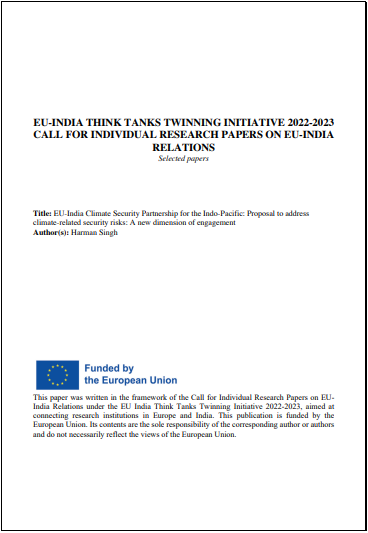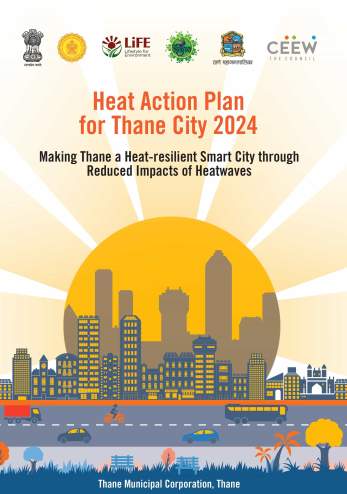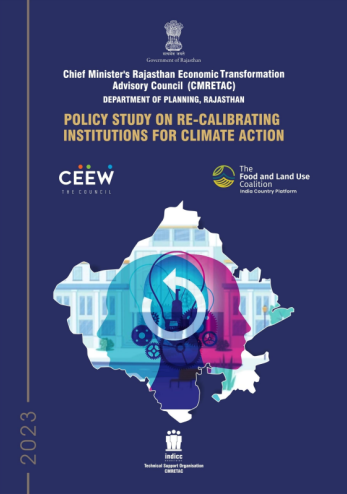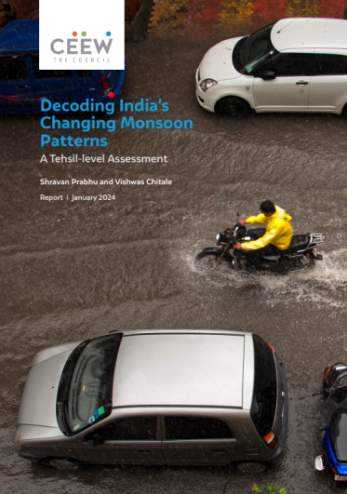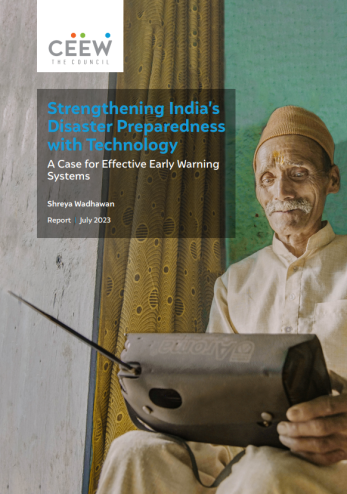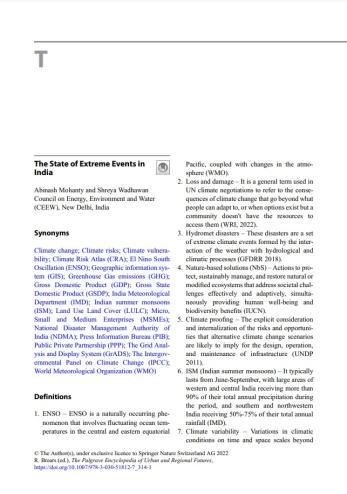Report
EU-India Climate Security Partnership for the Indo-Pacific
Proposal to address climate-related security risks: A new dimension of engagement
Harman Singh
April 2024 | Climate Resilience
Suggested citation: Singh, Harman. 2023. “EU-India Climate Security Partnership for the Indo-Pacific. Proposal to address climate-related security risks: A new dimension of engagement”. EU-India Think Tanks Initiative 2022-2023.
Overview
The speed and complexity of climate challenges today pose multifarious risks to societal stability, especially those pertaining to peace and conflict. These risks are multidimensional, for they can amplify socio-economic tensions, provoke competition over resources, or accentuate national rivalries affecting international order – thus, carrying vast security implications. The Indo-pacific region is particularly vulnerable to these climate-related security risks considering the range of conventional and unconventional challenges faced.
Since the European Union (EU) and India maintain geopolitical and geo-economic interests in the region, addressing climate-related security risks in the Indo-Pacific offers an opportunity for both camps to enhance cooperation, mitigate climate security risks, and consolidate interests in a region increasingly shaping global affairs. To this end, this policy paper proposes for the EU and India to consider forming a bilateral agreement addressing climate-related security risks in the Indo-Pacific, and cooperate in areas of climate adaptation, and climate risk assessment to mitigate security risks in the region.
Key Highlights
- Climate security risks are observed across the globe, and across various levels affecting human activities, community-level relations, and international security. These risks are multidimensional and a driver of conflict — especially when climate impacts interact with pre-existing vulnerabilities such as livelihood dependencies or inequalities of environmentally-stressed communities.
- At the heart of India’s core motivations behind pursuing a partnership agreement with the EU will be the sheer scale of climate-related security risks affecting the country. On the receiving end of many of these risks, India faces a host of complex internal and external security challenges from climate change.
- As there are no overarching regional institutional frameworks in the Indo-Pacific that bring together Brussels and New Delhi, building strategic partnerships is therefore a natural cooperation pathway for both — one that conforms with strategic autonomy strategies of the EU and India.
Key Recommendations
- In order to build capacities addressing climate-related security risks, India will urgently need to recognize the saliency and encumbrance of these risks, and engage with partner countries to reduce risks and enhance security across the wider region.
- There is a clear and urgent need for both Brussels and New Delhi to adopt policy measures addressing and integrating climate-related security risks in national security strategies and cooperation agreements.
- Climate adaptation efforts can prevent and reduce security risks, while certain adaptation strategies can be directed towards facilitating peace. Focusing on adaptation strategies designed to bolster community livelihoods or improve local resource governance will mitigate security risks, and promote stability in the region.
- Climate risk assessment models and disaster risk reduction efforts play a critical role in preventing climate impacts from gravely affecting populations. To this end, the EU and India can cogitate future cooperation pathways in advanced technologies and geo-spatial programmes, to help acquire information early and devise coordinated action in order to protect livelihoods.
Quote
“The proposed ‘EU-India Climate Security Partnership in the Indo-Pacific’ offers a clear path forward towards deepening relations, and expanding cooperation beyond the traditional trade and energy outcomes, to an area severely impacted, and equally bereft of redressal efforts.”




